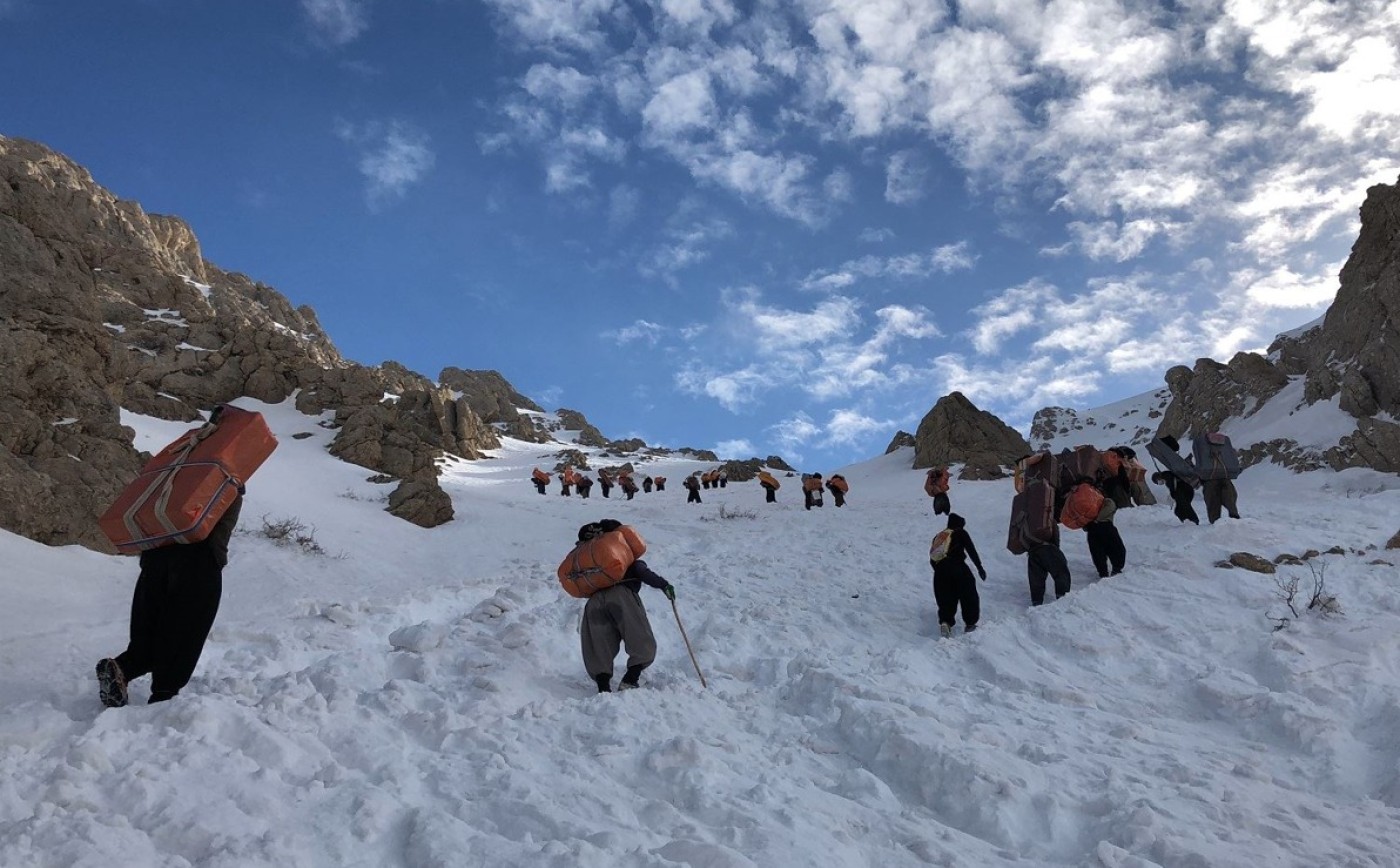When her husband died, Khajij Zarghami’s only support was his son, who had resorted to working as a kolbar due to a lack of job opportunities.
Each time he would leave for his job, Khajij would live in constant fear for his life as he was the family's only breadwinner and had to provide for his wife, three children, and his mother.
It was until one cold snowy night, when she heard the devastating news. Her only son and only support had fallen victim to the Iranian border guards’ bullets.
The year 2023 and the beginning of 2024 saw an increase in kolbar tragedies in Iran.
Due to increasing poverty rates and government neglect in the country’s western provinces, many resort to working as a kolbar.
Kolbars are only a small organ in a much larger and profitable body. People with no other options to make ends meet, often carry tens of kilos of different goods on foot across mountainous and snowy borders patrolled by brutal Iranian border guards.
While businessmen make loads of money through such trade, kolbars are given only a tiny portion of the money, sometimes barely enough to put food on their table.
According to the annual report from Kolbar News, which is a network monitoring violations against kolbars in Iran, between March 21, 2023 and March 21, 2024, at least 373 kolbars were killed with direct fire from border guards and 27 others have died as a result of natural causes including hypothermia and falling off mountains.
In the beginning of 2024, targeting of Kolbars in Iran’s Kurdistan, Kermanshah, and West Azerbaijan provinces continued.
In one video on social media, an elderly woman was mourning the death of her son Ali Zarghami, who had been killed brutally on the border of Saqez city.
Speaking to The New Region on the condition of anonymity, a relative of the family said that they are from a village called Sari Bagh but had moved to Saqez.
“Ali had been working as a kolbar for a few years to provide for the expenses of his elderly mother, as well as his wife and three children,” the relative said.
Talking about Ali’s death on the night of March 3, the relative said that “despite living in poverty and having three children, Ali had been helping his mother for the past 20 years since the death of his father,” adding that the fate of his ill mother is no longer clear now that he is gone.
Between March 13 until March 23, at least three kolbars in three different areas were killed by direct fire from Iranian border guards.
A newly-wed kolbar freezes to death
Apart from the fear of being shot dead by border guards, kolbars also live in constant fear of dying from natural causes.
In a tragic incident on February 6, a twenty-year-old kolbar from Mariwan, by the name of Farid Rubina, who had gotten married just 20 days prior, suffered from hypothermia and froze to death.
On March 16, another 48 year old kolbar by the name of Rahim MohammedZadeh from Sardasht fell from a mountain and died.
Unlike previous years, this year incidents of Iraqi border guards shooting kolbars to death also increased.
Shahram Waisi is a 42 year old kolbar from Nowsud district in Paveh who has been working as a kolbar for 15 years.
Speaking to The New Region, Waisi said that “during the years I have worked as a kolbar, I have never seen the situation of kolbars as bad as these last two years.”
“Previously, they would not even bother with us, we would bring the goods, and if they caught us they would just take our goods, but in the past two years they have started firing at us,” he said.
Having previously been wounded a few times on the job, Waisi added that “with the deterioration of the Iranian people’s financial status has led many people not just in Kurdish areas, but also in central provinces of the country, to resort to working as kolbars.”



 Facebook
Facebook
 LinkedIn
LinkedIn
 Telegram
Telegram
 X
X


